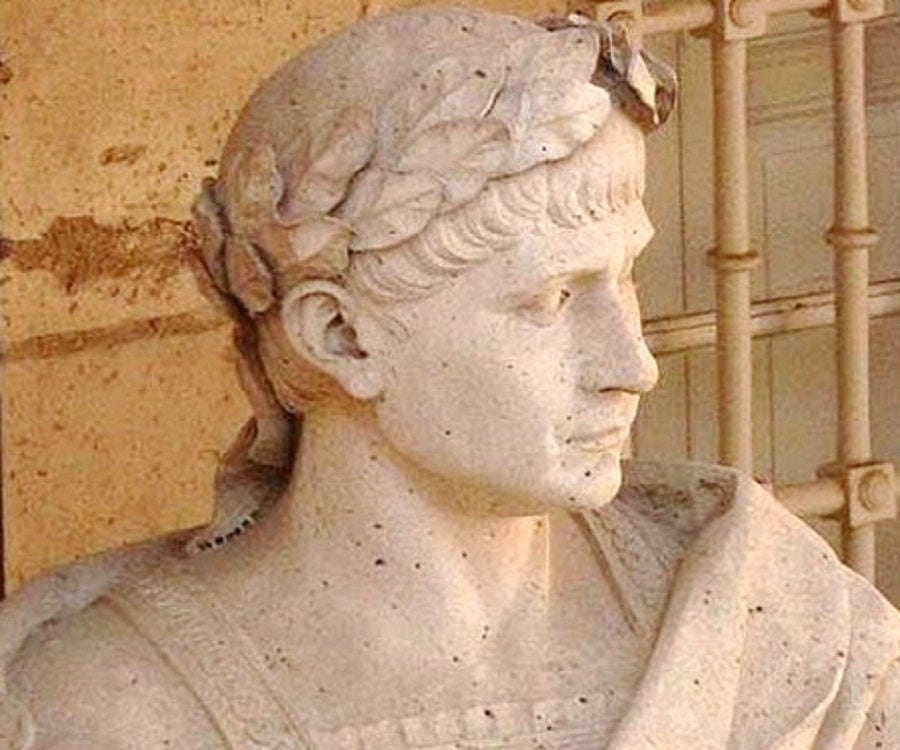8-15. The Character of Theodosius the Great
Theodosius did not abuse his victory; he granted a general pardon — even the usurper's ministers lost only their rank and titles, which were restored to them in the following year. But the fatigues and hardships of the war had broken down the Emperor's health; Honorius was summoned from Constantinople and was present in Milan at his father's death (17 January 395).
From the invective of heathen critics and the flattery of court orators it is no easy task rightly to estimate the character and work of Theodosius. To the Christians he was naturally first and foremost the founder of an orthodox State and the scourge of heretics and pagans, while to the worshippers of the older faith it was precisely his religious views and the legislation inspired by them which inflamed their furious resentment. The judgment of both parties on the Emperor's policy as a whole was determined by their religious preconceptions. Rome at least was his debtor; in the darkest hour after the disaster at Hadrianople he had not despaired of the Empire, but had proved himself at once statesman and general. The Goths might have become to the provinces of the East what the Alemanni had long been to Gaul; the fact that it was otherwise was primarily due to the diplomacy of Theodosius. Retrenchment and economy, a breathing space in which to recover from her utter exhaustion, were a necessity for the Roman world; a brilliant and meteoric sovereign would have been but an added peril.
To the men of his time the unwearying caution of Theodosius was a positive and precious virtue. His throne was supported by no hereditary dynastic sentiment, and he thus consciously and deliberately made a bid for public favour; he abandoned court tradition and appealed with the directness of a soldier to the sympathies of his subjects. In this he was justified, throughout his reign it was only in the West that usurpers arose, and even they would have been content to remain his colleagues, had he only consented. But this was not the only result of his refusal to play the demigod; Valentinian had often been perforce the tool of his ministers, but Theodosius determined to gather his own information and to see for himself the abuses from which the Empire suffered. His legislation is essentially detailed and practical: the accused must not be haled off forthwith on information laid against him, but must be given thirty days to put his house in order; provision is to be made for the children of the criminal, whether he be banished or executed, for they are not to suffer for their father's sins, and some share of the convict's property is to pass to his issue; men are not to be ruined by any compulsion to undertake high-priestly offices, as that of the high-priesthood of the province of Syria which entailed the holding of costly public games; provincials should not be driven to sell corn to the State below its market price, while corn from sea-coast lands is to be shipped to neighbouring sea-coast towns and not to distant inland districts, in order that the cost of transport may not ruin the farmer. Fixed measures in metal and stone must be used by imperial tax collectors, that extortion may be made more difficult, while defensores are to be appointed to see to it that through the connivance of the authorities robbers and highwaymen shall not escape unpunished.
Theodosius himself had superintended the work of clearing Macedonia from troops of brigands, and he directed that men were to be permitted to take the law into their own hands if robbed on the high roads or in the villages by night, and might slay the offender where he stood. Examples might be increased at will, but such laws as these suffice to illustrate the point. In a word, Theodosius knew where the shoe pinched, and he did what he could to ease the pain. Even when claims of Church and State conflicted, he refused to sacrifice justice to the demands of orthodox intolerance; in one case the tyrannous insistence of Ambrose conquered, and Christian monks who had at Callinicum destroyed a Jewish synagogue were at last freed from the duty of making reparation; but even here the stubborn resistance of the Emperor shews the general principles which governed his administration.
Though naturally merciful, so that contemporaries wondered at his clemency towards the followers of defeated rivals, yet when seized by some sudden outburst of passion he could be terrible in his ferocity. He himself was conscious of his great failing, and when his anger had passed, men knew that he was the readier to pardon: Praerogativa ignoscendi erat indignatum fuisse. But with every acknowledgment made of his weaknesses he served the Empire well; he brought the East from chaos into order; and even if it be on other grounds, posterity can hardly dispute the judgment of the Church or deny that the Emperor has been rightly styled “Theodosius the Great.”
To obtain a deluxe leatherbound edition of THE CAMBRIDGE HISTORY OF THE BYZANTINE EMPIRE, subscribe to Castalia History.
For questions about subscription status and billings: library@castaliahouse.com
For questions about shipping and missing books: shipping@castaliahouse.com






